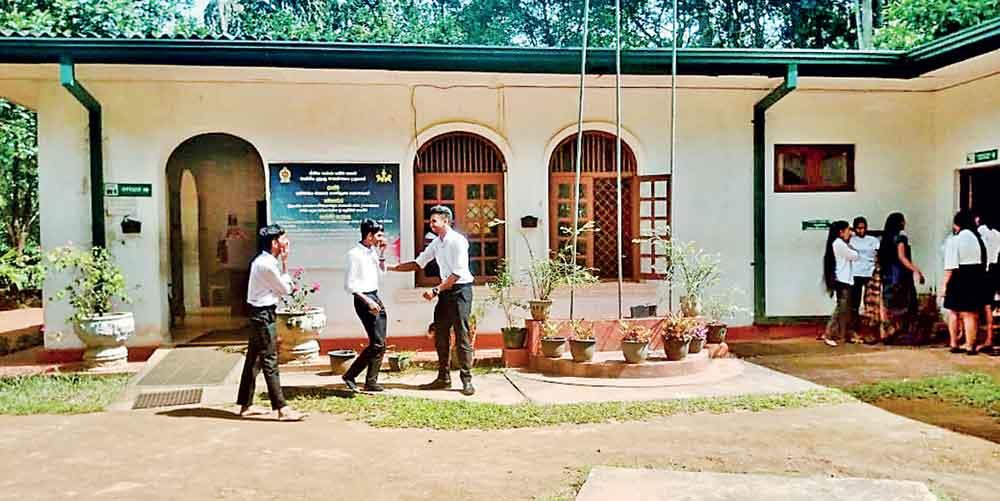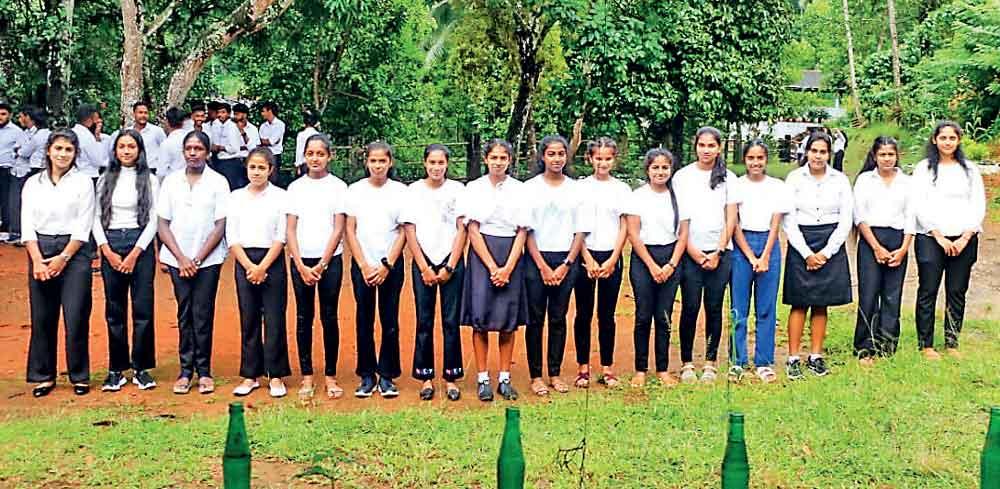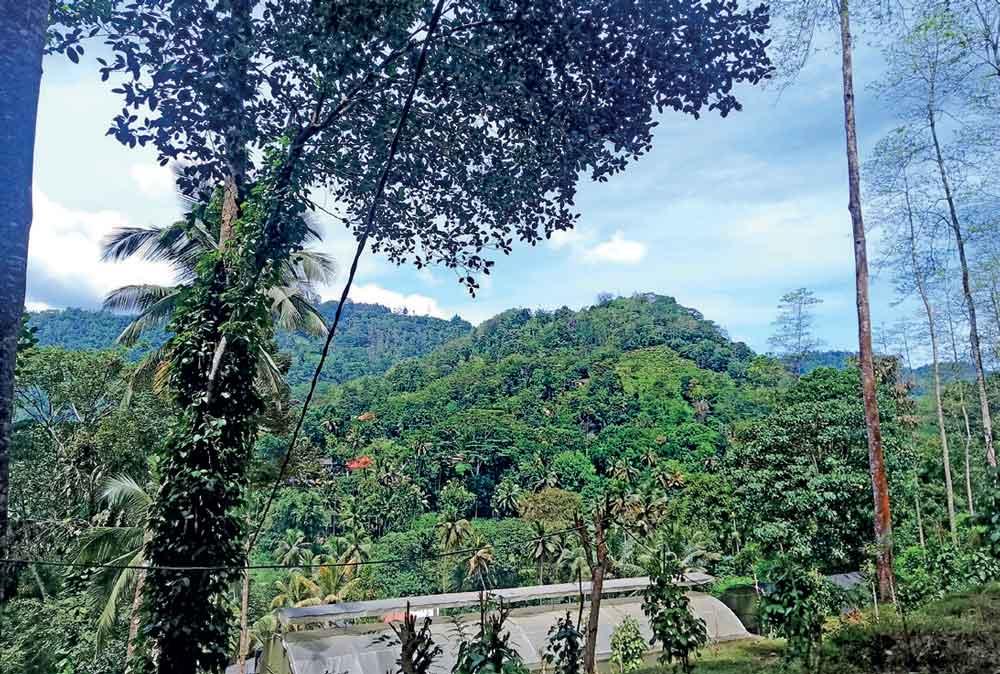Reply To:
Name - Reply Comment

The bungalow at St. Mary’s Estate now turned into a training centre
The JVP’s ‘Ill Maha Samaruwa’ commemoration held on November 13 annually coincides with the death anniversary of its founder
A leader with an unmatched personality, Wijeweera was able to build a strong political force that a taken over the reins of the government by 2024
The model of the Mitsubishi motorcar used by the JVP leader was later popularly known as Attanayake model among motorists
 By a turn of fate, the followers of founder leader of the Jathika Vimukthi Peramuna (JVP) Rohana Wijeweera have been destined to take over the helm of the country’s rule; just 35 years after the comrade’s death.
By a turn of fate, the followers of founder leader of the Jathika Vimukthi Peramuna (JVP) Rohana Wijeweera have been destined to take over the helm of the country’s rule; just 35 years after the comrade’s death.
The National People’s Power (NPP), that has assumed power, is an affiliate of the JVP, which had its birth at Keletthewa in 1965.
|
Rohana Wijeweera
|
Its founder leader Wijeweera would have been 81 years old by the next November 13 if he had lived. However during his struggle to seize power in 1971 and then again in 1988/89, his movement was suppressed by the governments in power. Ultimately he was compelled to live a life in disguise.
The JVP Leader, who lived at an estate bungalow in Ulapane, in the district of Kandy, posing as a planter, was arrested by the security forces on November 12, 1989.
Born July 14, 1943 at Kottegoda, in the south, he had been named as Patabendi |Don Nandasiri Wijeweeera, later to be known as Rohana Wijeweera.
After his primary education at Godauda Junior School and Godauda Maha Vidyalaya, he was admitted to Ambalangoda Dharmasoka College for higher education.
In 1960 he was fortunate to join Lumumba Friendship University in Russia on a scholarship. That became the turning point in his life. Wijeweera who took to socialist politics by forming the JVP on May 14, 1965 believed in bringing about a revolutionary change to the country.
In 1983, the government in power banned the leftist political parties including JVP, Sri Lanka Communist Party and Lanka Samasamaja Party in the aftermath of the communal riots in July 1983; events which forced historians to pin the label ‘black July’ to that episode in history.
|
The former JVP Leader photographed just prior to his death
|
The government accused the JVP of having secret relations with the LTTE and receiving weapons. When the party was banned, it was compelled to carry on its activities in disguise.
JVP Leader Wijeweera went into hiding and lived at St. Mary’s Estate in Ulapane with his family. He posed off as a planter by the name of Attanayaka Mudiyanselage Shantha Nimalasiri Attanayaka. Mrs Chitrangani Wijeweera (his wife) was known by the name of Samarakoon Arachchilage Sriyani Chandima. Two of his relatives and a watcher called Ekanayaka were other occupants in the estate bungalow. They had come into occupation of the house on September 01.1988. The five acre estate with the bungalow had been purchased for Rs. 375,000 and his motorcar for Rs. 220,000; obtained with party funds. The model of the Mitsubishi motorcar was later popularly known as Attanayake model among motorists.
St. Mary’s Estate in Ulapane is located on a hillock in a lovely and attractive countryside. Overseeing the hillock is Ulapane village bounded by the Kandy-Nawalapitiya main road and the upcountry railway.
|
The vehicle used by the former JVP Leader
|
Wijeweera, although an imposter by the name of Attanayake, had always helped the people. He had purchased daily newspapers from a newspaper dealer in Nawalapitiya without alighting from his motorcar. He was in the habit of obtaining all the newspapers by calling an employee of the newspaper agency who came to the motorcar and handed over the list of newspapers he wanted. The newspaper agency ‘Cheap Side|’ exists to date in Nawalapitiya town.
Despite all attempts made by him to live secretly, the security forces had received intelligence leading to his arrest. In the afternoon on November 12 1989 he was arrested and brought to Colombo for questioning. A video recording which contained a request from him to the JVP to refrain from engaging in riotous activities was telecast.
The leader of a recognised political party in the country Wijeweera was shot dead in the early hours of November 13, 1989 and cremated at the Borella public cemetery.
He will go down in the history of Sri Lanka as a prominent figure in the country’s politics. His movement has been able to take control of the political arena in the country clearly indicating that his political ideology remains a strong factor in the country’s politics even though he is no more. A leader with an unmatched personality, Wijeweera was able to build a strong political force that has taken over the reins of the government by 2024.

A present batch of students receiving training at the NYC training centre in Ulapane
The JVP’s ‘Ill Maha Samaruwa’ commemoration held on November 13 annually coincides with the death anniversary of its founder. It is of significance that they have been fortunate to hold the commemoration this year as rulers of the country. Anura Kumara Dissanayake, the leader of the National People’s Power, an alliance headed by the JVP, is today President of Sri Lanka. Political analysts are of the view that the NPP would command a landslide victory on November 14, which falls on the day following the death anniversary of Wijeweera.

A picturesque view of the surroundings near St. Mary’s Estate in Ulapane
The hideout of Wijeweera and his family, St. Mary’s Estate and the bungalow with other properties, had been confiscated on May 15, 1990 by the President under the Public Security Act. These assets were handed over to the National Youth Council (NYC) to facilitate a training centre.